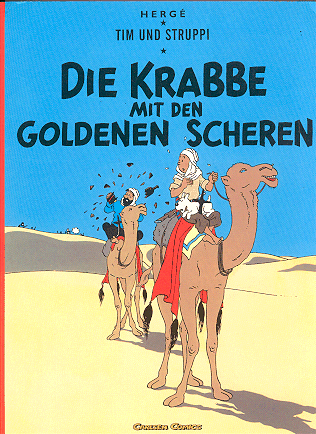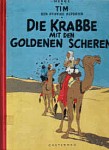| TINTIN LANGUAGES | |
| AFRIKAANS | |
| ALGUERES | |
| ALSATIAN | |
| ARABIC | |
| ASTURIAN | |
| BASQUE | |
| BERNESE | |
| BENGALI | |
| BRETON | |
| BULGARE | |
| CAMBODIAN | |
| CATALAN | |
| CHINESE | |
| CORSICAN | |
| CZECH | |
| DANISH | |
| DUTCH | |
| ENGLISH | |
| ESPERANTO | |
| FARSI | |
| FAEROESE | |
| FINNISH | |
| FRENCH | |
| FRIESIAN | |
| GALICIAN | |
| GALLO | |
| GAUMIAN | |
| GERMAN | |
| GREEK | |
| HEBREW | |
| HUNGARIAN | |
| ICELANDIC | |
| INDONESIAN | |
| ITALIAN | |
| JAPANESE | |
| KOREAN | |
| LATIN | |
| LUXEMBOURGER | |
| MALAYALAM | |
| NORWEGIAN | |
| OCCITAN | |
| PICARDY | |
| POLISH | |
| PORTUGUESE | |
| ROMANSCH | |
| RUSSIAN | |
| SERBO-CROAT | |
| SINHALESE | |
| SLOVAK | |
| SPANISH | |
| SWEDISH | |
| TAHITIAN | |
| TAIWANESE | |
| THAI | |
| TIBETAN | |
| TURKISH | |
| VIETNAMESE | |
| WELSH | |
| TOTAL 60 VERIFIED LANGUAGES | |
| RUMOURS | |
| MIRANDES | |
|
MONEGASCO |
|
| PROVENÇAL | |
| RUANDES | |
| MONEGASCO | |
| LINKS | CRAB MENÚ | CASTAFIORE MENU |
 |
GERMAN | |||||||||||
|
||||||||||||
|
German is one of the
main cultural languages of the Western world, spoken by
approximately 100 million people. It is the national language of
both Germany and Austria. and is one of the four official
languages of Switzerland. Additionally it is spoken in eastern
France, in the region formerly known as Alsace-Lorraine, in
northern Italy in the region of Alto Adige, and also in eastern
Belgium, Luxembourg, and the principality of Liechtenstein. There
are about one and a half million speakers of German in the United
States, 500,000 in Canada and sizable colonies as well in South
America and such far-flung countries as Namibia and Kazakhstan.
Traditionally German was written in a Gothic style known as Fraktur, which dates from the 14th century. In the period following World War II, however, Fraktur was largely superseded by the Roman characters used throughout the rest of Western Europe. The Roman script contains only one additional letter, the ß or double s, which is used only in the lower case. Since English is a Germanic language, it is not surprising to find a high degree of similarity in the vocabulary of the two languages. Finger, Hand, Butter, Ring, Name, warm, and blind are German words mean-mg exactly what they do in English. Other words that are very similar to their English counterparts are Vater (father), Mutter (mother), Freund (friend), Gott (God), Licht (light), Wasser (water), Feuer (fire), Silber (silver), Brot (bread), Milch (milk), Fisch (fish), Apfel (apple), Buch (book), gut (good), alt (old), kalt (cold), and blau (blue). More recent German borrowings in English are schnitzel, sauerkraut, pumpernickel, kindergarten, dachshund, poodle, yodel, lager, ersatz, edelweiss, meerschaum, wanderlust, hinterland, and blitzkrieg. The words frankfurter and hamburger come from the German cities of Frankfurt and Hamburg respectively. |
|
PUBLISHER
Carlsen Comics |
|
ONLINE SHOPING |
|
LINKS
|
 1st EDITION 1953
1st EDITION 1953
|
|
I'VE GOT THIS ONE | ! WANTED! |